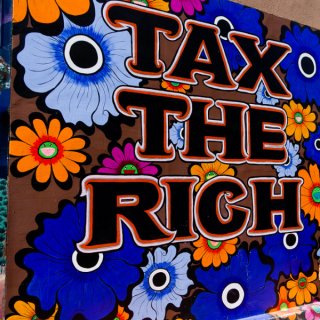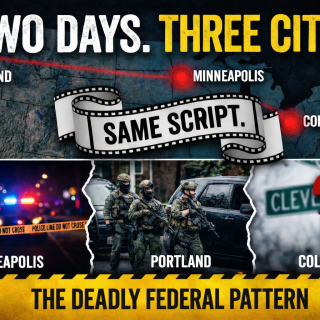A public relations and marketing campaign called FL4ALL announced itself in a full-page ad in the New York Times on August 3, 2021. It represents a dangerous fiction and threat to students and unsuspecting “hard working citizens,” to repeat its promotional language. The campaign’s actions follow what I declared in my 1979 book, The Literacy Myth, the exaggerated importance of literacy by itself, taken out of context. To borrow terms from the field of literacy studies, “reading” the advertisement as “written” is revealing.
Let’s look at the text. It misrepresents both literacy and economics, and is a danger to the population this corporate coalition claims to serve.
First, no reputable person says or writes “FL” for “financial literacy.” Perhaps for a football league. Second, only marketers and business corporations seeking to derive financial profits would consider promoting a flawed slogan like “FL4ALL.” In corrupting well-established public civil rights movements, such sloganeering is a shameful misappropriation. The ad proclaims that “financial literacy is a civil rights issue of this generation.”
“Civil rights” is a complicated and contested term. This kind of imitation is unacceptable. It is offensive to genuine civil rights activists and the public. Could FL4ALL not afford a responsible advertising agency?
Third, the poorly constructed and misleading wording asserts that “you can grow the economy by expanding the ladder of opportunity.” Do they really mean making the “ladder of opportunity” longer? Fourth, the “mission statement” ends with, “We believe in embedding financial literacy into the business plan of America.” Here we have the most forthright statement in the ad. The fundamental goal of the 10-year project is “the business of plan of America,” though no business plan appears on their website. The founding organizations comprise eight corporations, the NBA, and the NFL, with an online “education academy” the only representative of any kind of formal education.
The PR campaign continues by committing “ourselves and our corporations to addressing one of America’s greatest challenges: the lack of knowledge and understanding of how money—and everything that revolves around it—works.” Is this what they mean by “financial literacy”? Once again, the writing is uncertain; “American’s greatest challenges” are distorted; the sales pitch is awkward. In the next paragraph, FL4ALL confuses “financial stress”; the “costs” of financial illiteracy; and “most Americans’” lack of funds for emergencies. The “call to action” and “time to act” become more muddled by the paragraph.
Among the many problems is that “financial literacy” is never defined by FL4ALL. It is at best a rhetorical metaphor and at worst a fiction or myth. In the hands of this campaign, it is an undisguised pitch designed to sell FL4ALL as a product and lead, however indirectly, to profits. The promotion applies most directly to co-sponsor Khan Academy but also to Bank of America, Walmart, Delta Airlines, Disney, PayPal, and other “founding organizations” and their “partners” BlackRock, iHeart Radio, Mastercard, U.S. Bank, Nextdoor, and others.
As an internationally recognized historian of literacy, I argue that we must define literacy clearly. Literacy is a form of reading, writing, and in some instances arithmetic, based on a common set of recognized symbols, including major alphabets and numeral systems. The ceaseless proliferation of “many literacies” since the 1970s allows anything imaginable to declare itself a “literacy.” This multiplication ranges from “sports literacies” to “automobile literacy” and “dog or cat literacy,” with “financial literacy” in between. Together, it threatens to destroy any agreed-upon definition of literacy, especially in education.
It is critical to start with the basics and then qualify the term “literacy” when appropriate with an adjective. Otherwise conceptualization, shared knowledge, and communication are impossible. Isolation and distortion follow. These aspirational “literacies” have sales or related appeal among their proponents. The extent to which they have a meaningful appeal remains unclear and untested.
The unmistakable result is general confusion. FL4ALL contributes significantly to that. We must join together to work for clarification and common knowledge, and combat distortion and misappropriation for marketing purposes.
-----------------------------------------------
Harvey J. Graff is Professor Emeritus of English and History, former Ohio Eminent Scholar in Literacy Studies, and founding director of LiteracyStudies@OSU. His many books include The Literacy Myth; The Legacies of Literacy; The Labyrinths of Literacy; Literacy Myths, Legacies & Lessons; Conflicting Paths; The Dallas Myth; and Undisciplining Knowledge: Interdisciplinarity in the Twentieth Century. Searching for Literacy: The Social and Intellectual Origins of Literacy Studies will be published in 2022. He coined the commonly used phrase “the literacy myth.”



